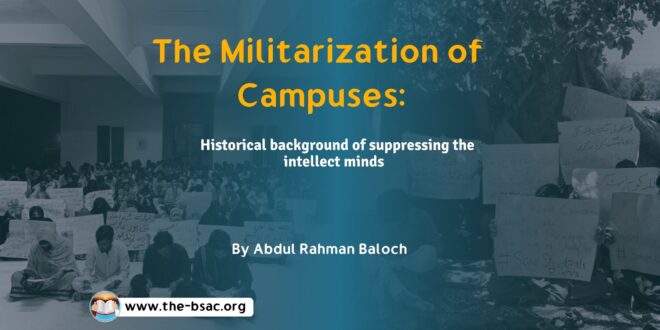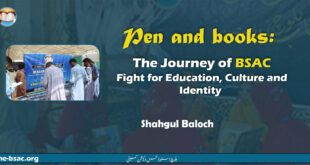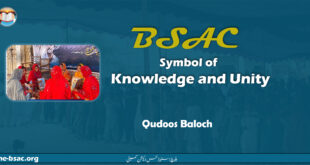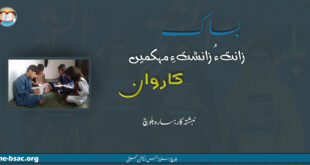The Militarization of Campuses: Historical background of suppressing the intellect minds
- By Abdul Rahman Baloch
Educational institutions are considered to be the centers of the intellectual debates, politically nurturing of students and social progress. From The ancient times of Greece to the present era of globalization, The Youth Have played a crucial role in enlightening and struggle for a progressive society.
However, Intellectual Debates, exploring ideas and Being Politically Aware Arises The concept of thinking, demanding logics, knowing what’s right and struggling for eradicating The Contradictions Which, in the Perspective of Repressive States, was an act of threat rather than progress.
Across The Globe, States Have Reacted with Violent and harsh crackdowns on student movements by banning political activities on campuses, deploying security Forces and arresting the political leaderships of the students. The Exercise of turning universities into military bases by deploying securities and installing surveillance cameras in the name of security, but for sole reason of profiling students and creating an environment of fear in the institutions.
This article in glance, examines the historical background of militarization of educational institutions, The Tactics used for suppressing students and Lastly This Article Debates On the harsh practices of state on the universities of Balochistan and role of Baloch students to countering such repressive policies.
Historical Background: The Roots of Militarization:
Educational institutions have been the center of political practices and political ideologies serving as resistance against state oppression and struggle for acquiring the rights which the states are obligated to give. From colonial cowers to authoritarian governments, the militarization of the academics has been exercised in different forms: The earlier regimes relied on the intervention of military in institutes, the modern authorities practice sophisticated surveillance, legal restrictions and control to silence dissent in universities.
In this article, various military oppressions on students from different regions and period are included for better understanding of the tactics of repressive states against the political activism.
The coup d’état of 1943 in Argentina:
The Argentinian students have experienced brutal practices of the military regimes and authoritarian governments to silence their voice and suppress their political activities.
A major event relevant to our debate is the military rule of General Pedro Pablo Ramirez. This military rule brought a coup d’état on June 4, 1943 which overthrew President Ramon Castillo. This regime sought to control various aspects of the state including the educational institutes.
The military regime viewed universities as the hub of political activism, particularly the leftist organizations, who were considered as anti-state by the regime. To suppress the student organizations and political activism, the regime used various tools for the control of academics.
1: The regime appointed state-backed officials to key positions of the administrations to suppress the students in the parameters of the academics.
2: The authorities dismissed various Professors and students who were viewed suspicious of opposing the regime. These individuals faced illegal cases, social isolation as citizens and many were expelled from institutions and were forced to exile.
3: The argentine military regime banned political activism and cracked down on political discussions and activities, effectively silencing students for their rights.
4: The military forces were deployed in institutions to intervene in student affairs and effectively having surveillances on students and profiling politically mature students.
Despite the oppressive challenges of the military regime, the students struggled against oppression through secretly mobilizing the students, conducting protests for their rights and alliancing themselves with various political unions and parties. The resilient struggle of the students against the oppressive regime was considered as the ignition and influence on shaping the future of democratic movements in Argentina.
The 1979 Khomeini revolution and repression on students:
While Argentina’s military regime was marked the beginning of state intervention in universities, a similar case of student suppression unfolded in the events of Iran during the 1979 revolution.
The post-revolution of 1979 was viewed by the students as a hope for a greater political freedom and social justice. But once the Khomeini gained power, he turned against the students who were the key components of the struggle against the Pahlavi Regime.
The Islamic republic considered secular, leftist and liberal ideas threatening and suppressed political student movements for the “stability “of the state which lead to the harsh crackdowns in institutes.
To better understand the harsh policies of the Islamic state practiced on the educational institutions was to “Islamize” the Iranian state with the policy of Cultural Revolution of 1980 to 1987. Cultural Revolution refers to the period following the Iranian revolution which focused on purging the academia of Iran of western and non-Islamic influences to align with the Islamic based pedagogy and islamization policy. Elimination of opposition was a major cause for the state to militarize the education, several Marxist, secular nationalist groups, including the Baloch organizations, were eliminated which were considered threatening elements against the idea of personalization of the Islamic state. The Khomeini Regime viewed the student movements as the tools of western imperial powers to weaken the Islamic regime.
As the movement of cultural was in practice, The Khomeini regime pressurized the student unions and educational institutes, The Iranian regime used legal, military and ideological tactics to suppress dissent in the academia.
1: Thousands of professors and students were expelled and arrested for their political thoughts, similar to the practice of argentine regime in 1943. Many intellectuals, political workers and students were compelled to flee the state which caused a vast brain drain, resulting a large negative influence on the higher education of the country.
2: During the 1980s, universities were shut down for at least three years to “cleanse” the institutes from secular and anti- Islamic influences, after a long period, the academies were reopened and the ones who supported the Islamic ideas and the given conditions were allowed to return.
3: The repressive states mainly focus on profiling and harassing the students who were indulged in political practices, likewise in the Iranian state, various state-backed Islamic student groups were established in the universities such as the Basij student force. BSF’s objectives were aligned with the regime’s interests which were to profile the students, manipulate and propagate against the political movement and in some cases, help the authorities to forcefully abduct the individuals with political beliefs.
4: Extrajudicial practices were at its peak during this period. Many students affiliated with political organizations faced brutal punishments including abductions, tortures and executions. Such practices caused a mentality of fear and tension among the students.
Iranian regime with its brutal practices demolished the political framework of progressive student movement but despite such repressive conditions, students with committed ideas conducted demonstrations against the university purges, closure of universities and executions often facing brutal crackdowns by the police and militias. Several students fled the state and established exile communities in Europe and U.S.A who struggled for international advocacy.
Balochistan’s educational institutions under siege: repression and resistance:
The political activism of Baloch students is considered to be the nurturing element of Baloch consciousness. Historically The Baloch student politics with the ideology of nationalism struggled to politically unite the Baloch youth for the political rights in educational campuses and society. Similar to the student movements discussed previously, Baloch students have also experienced state hurdles. In the 1970s, the Zulfiqar regime and Zia authority banned political activities which caused a political vacuum in Pakistan affecting the student activism of Baloch students. During the early 2000s, Baloch students faced various crackdowns, from banning student organizations, forceful abductions to extrajudicial killings were practiced in intense measures which caused a political oppression until the beginning of early 2020s. Baloch Students Action Committee rose as a hope of Baloch students with various policies such as Balochistan kitab karwan, Baloch literacy campaign and circling of Baloch students. Similar to the previous oppression, Baloch students are facing repressive acts as we speak.
In November 2024, Baloch students faced brutal crackdown of the security forces in Quetta on illogical bases. The students were attacked with shell gases, were baton charged and hundreds were arrested including the female students and were later released with physical remands. The larger tactics practiced by the state was to unlawfully seal the hostels of Bolan medical college, forcing the students to evacuate the hostels and were compelled to leave behind their valuable belongings which were later looted by the police officials. The security forces were deployed in the campuses to militarize the institutes and create an environment of fear. Many students were fearing due to the absence of sense of security.
After such brutal practices, the determined students organized protests and sit-in campaigns in the freezing temperature of Quetta. The sit-in campaign demanded the reopening of hostels and demolishing of militarization of campuses. The student organizations, mainly The leadership Of BSAC organized a sit-in campaign which continued for 28 days. The campaign faced crackdowns, profiling of the protestors and various other tactics but the students committed with their objectives succeeded achieving their demands with unwavering struggle.
But the oppressive tactics of the state does not ends with the BMC. University of Turbat is known for its irresponsible and frivolous behavior towards the welfare of a healthy and progressive environment of the university has caused challenges in the academic careers of the students.
The administration has previously practiced the cancellation of allotments of students from their hostels on sophisticated reasons which has disrupted the studies of students. The administration has previously exercised to suppress student activism by not allowing study circles and Educational events by tagging them as threatening against the regulations of the university. A committee which is named as disciplinary committee for the sole reason of nullifying the freedom of expression and the rights of students to organize activities for a progressive environment. Gates were closed and students were not allowed to enter the parameters of the Institution and bookstalls, which are legal to organize, named as illegal and are countered by the security forces are exercised on daily basis.
Recently, following the bookstalls conducted By the BSAC, 6 students were suspended and several were warned by the administrations so called disciplinary committee and students were alleged with sophisticated allegations. In response to these unlawful acts, Baloch students organized a rally in the boundaries of university for their basic political rights but as expected, the students were ignored and were threatened by the administration.
The students were compelled to conduct a sit-in campaign In front of the admin of the university in protest of the unlawful suspensions and demanding the restoration of the suspended students. The students held a press conference on 13 march announcing their sit-in campaign for their objectives but no serious actions were taken by the administration and in opposite of taking actions, The admin threatened and warned for larger repressive actions on the protesting students.
The students view such policies as anti-progressive, Non-progressive and suppression of their freedom of expression, But despite various tactics, The students are determined to struggle against such unlawful practices and peacefully protest against the militarization of the educational institute.
Similar to the repressible administration of University of Turbat, The Lasbela University of agriculture, water and marine sciences (LUAWMS) has suspended 2 students and imposed penalties of 10k on various students has created an unrest in the campus. LUAWMS, a vital educational campus of progressive debates and political activism, is today in the control of state backed bureaucrats who practice harsh policies in the university. Following the recent bookstalls of Balochistan kitab karwan and the event of program of Baloch culture day, the students were expelled by the disciplinary committee on the basis of breaking the laws and regulations of the admin, the same Laws which are narrated to create a healthy environment within the framework of the institution.
In response to such oppressive acts of the university, students held a press conference demanding the readmission of the expelled students and demolishing the unreasonable penalties on the students, but as expected the administration showed no responsible reaction which fueled the students to conduct a sit-in campaign that is ongoing as we discuss. The students are being harassed, profiled and are being warned with threats of their well-being by the state backed authorities but the unwavering commitment of the students has united the youth against the state militarization of their university which is a policy of long-term threat to their basic rights in the Institutions.
Conclusion:
The repressive militarization of the educational institutes has impacted on suppressing the critical growth, control and manipulate youths into mere passive subjects.
Moreover, the educational Institutions of Balochistan are experiencing substantial state militarization at a vast scale, causing long-term challenges and contributing a vast brain drain effect in Baloch society.
However, the students with political beliefs are determined to stand united to resist state repression and preserve a productive environment for academic growth.




